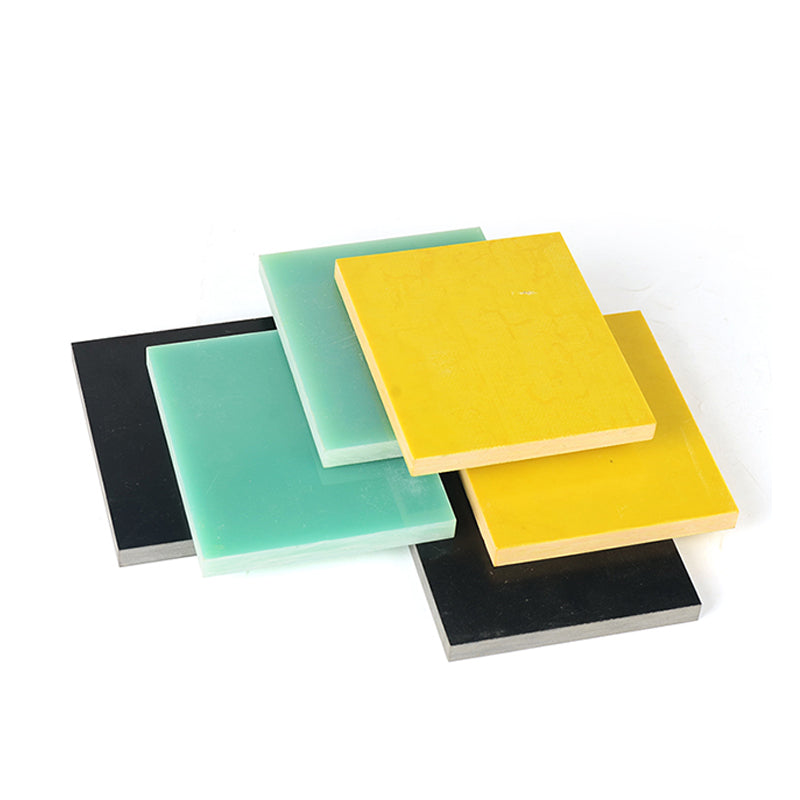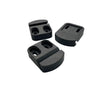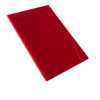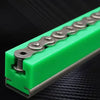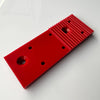Bakelite Phenolic Sheets: The Insulator’s Choice for Electrical Safety
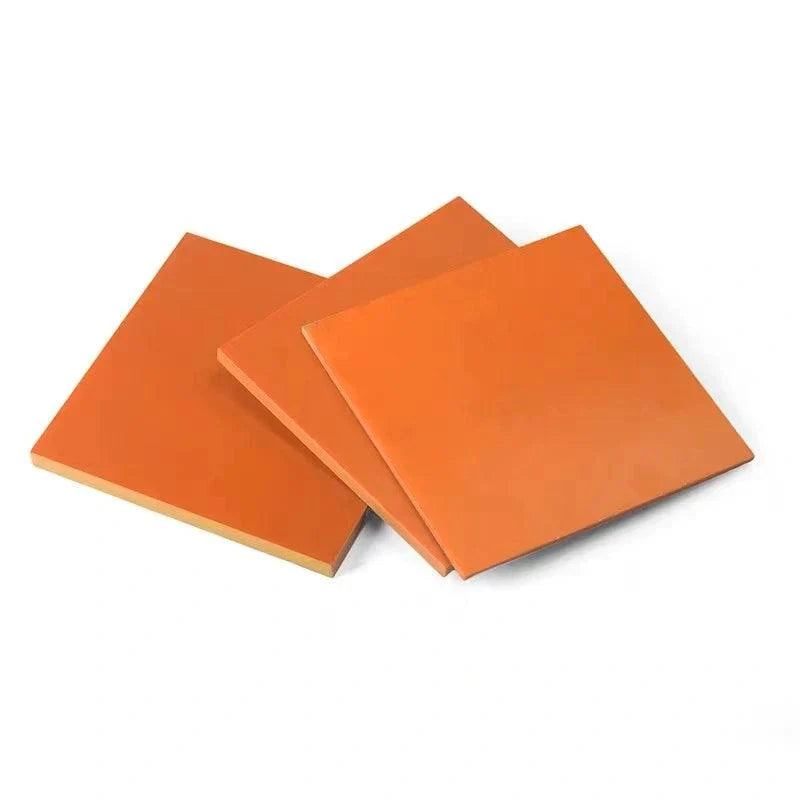
Discover the unparalleled benefits of Bakelite Phenolic Sheets in my latest blog post, "Bakelite Phenolic Sheets: The Insulator’s Choice for Electrical Safety." Explore how these phenolic sheets provide exceptional electrical insulation and mechanical strength, making them a top choice in both electrical and electronics industries. Learn about the variety of Bakelite sheets available in different thicknesses, including 1mm, 3mm, 5mm, 10mm, and 12mm, and find out how to choose the right one for your specific needs.
Limited Time Offer
Use code: QR4GNY08SHVR at checkout
Enjoy a special discount on your entire order! 👉 Shop Bakelite Plastic Now

I delve into their diverse applications in the automotive industry, showcasing their heat resistance and durability in automotive parts and components. Discover why Bakelite is a favorite among musical instrument makers and crafters for creating guitar pickguards, jewelry, and art pieces. Plus, get valuable tips on the maintenance and longevity of these remarkable Bakelite products to ensure they serve you well for years to come.
Join me as I uncover the secrets behind the enduring popularity of Bakelite Phenolic Sheets and why they remain a trusted material in various industries today.
Introduction to Bakelite Phenolic Sheets
Overview of Bakelite and Its Significance
Bakelite stands as a cornerstone in the evolution of synthetic materials, marking a significant breakthrough in the early 20th century. Invented by Dr. Leo Baekeland in 1907, Bakelite was the first fully synthetic plastic, heralding the dawn of the modern plastics industry. Its unique properties, such as high heat resistance, electrical insulation, and mechanical strength, made it an indispensable material across various industries.
Bakelite quickly found applications in electrical insulators, radio and telephone casings, and automotive components due to its durability and non-conductive nature. The material's ability to withstand high temperatures and resist chemical corrosion further cemented its role in industrial applications. Today, Bakelite remains a preferred choice for specific uses, particularly in environments requiring robust and reliable performance.
Introduction to Phenolic Sheets and Their Unique Properties
Phenolic sheets, derived from Bakelite, retain many of the original material's advantageous properties while offering additional benefits tailored to modern applications. These sheets are manufactured by impregnating layers of paper or fabric with phenolic resin, resulting in a composite material that is both versatile and durable.
One of the standout features of phenolic sheets is their exceptional electrical insulation capabilities. This makes them ideal for use in electrical and electronic components where safety and reliability are paramount. Additionally, their mechanical strength and resistance to wear and tear make them suitable for demanding industrial environments.
Phenolic sheets are also known for their excellent thermal stability, allowing them to perform well under high-temperature conditions. This property is particularly valuable in applications such as electrical insulators, circuit boards, and heat shields. The material's versatility extends to its ability to be easily machined and fabricated, making it a practical choice for a wide range of manufacturing processes.
Overall, Bakelite phenolic sheets combine the historic strengths of Bakelite with modern advancements, offering a material that meets the stringent demands of contemporary industrial and electrical applications. By understanding the unique properties and benefits of these sheets, industries can continue to leverage their potential for innovation and safety.

Electrical Insulation Properties of Bakelite Phenolic Sheets
Detailed Explanation of the Electrical Insulation Properties
Bakelite phenolic sheets are renowned for their superior electrical insulation properties. This material's exceptional insulating ability stems from its composition, which includes phenolic resin impregnated into layers of paper or fabric. This unique combination results in a material that can effectively resist electrical currents, making it an ideal choice for applications requiring high levels of electrical safety.
The phenolic resin in these sheets provides a high dielectric strength, which means it can withstand significant electrical voltage without breaking down. This property is crucial for components that need to operate safely in environments with high electrical stress. Additionally, Bakelite phenolic sheets exhibit low water absorption, which ensures that their insulating properties remain stable even in humid or wet conditions.
Comparison with Other Insulating Materials
When comparing Bakelite phenolic sheets to other insulating materials, several key advantages become apparent. For instance, compared to materials like ceramics and fiberglass, Bakelite phenolic sheets offer a more versatile and cost-effective solution. Ceramics, while excellent insulators, are brittle and can break under mechanical stress. In contrast, Bakelite phenolic sheets combine electrical insulation with mechanical strength, making them more durable in demanding environments.
Fiberglass, another common insulating material, provides good insulation but can be more challenging to work with due to its fibrous nature, which can cause irritation during handling. Bakelite phenolic sheets, on the other hand, are easier to machine and fabricate, making them a more user-friendly option for manufacturers.
Additionally, compared to newer synthetic materials like polyimides, Bakelite phenolic sheets offer a more economical solution while still delivering excellent performance in most applications. Polyimides are known for their high-temperature resistance but come at a significantly higher cost. Bakelite phenolic sheets strike a balance between performance and affordability, making them an attractive choice for many industries.
Applications in Electrical and Electronics Industries
Bakelite phenolic sheets find extensive use in the electrical and electronics industries due to their outstanding insulating properties. They are commonly used in the production of electrical insulators, which are crucial for preventing unwanted flow of current and protecting both equipment and users from electrical hazards.
In electronic components, Bakelite phenolic sheets serve as the base material for printed circuit boards (PCBs), providing a stable and non-conductive platform for the intricate circuitry. Their thermal stability also ensures that these boards can operate safely at higher temperatures, which is essential for modern electronic devices.
Moreover, Bakelite phenolic sheets are utilized in transformers, switches, and relays, where reliable insulation is critical for efficient and safe operation. In these applications, the material's ability to withstand high voltages and its durability under mechanical stress make it an indispensable component.
The versatility of Bakelite phenolic sheets extends to their use in motor insulation, where they protect winding wires from short circuits and electrical failures. This application highlights the material's ability to maintain its insulating properties over extended periods and under varying operational conditions.
By understanding the electrical insulation properties of Bakelite phenolic sheets, as well as their comparison with other materials and their applications in critical industries, it becomes clear why this material continues to be a preferred choice for engineers and manufacturers seeking reliable and efficient solutions.

Mechanical Strength and Durability of Bakelite Phenolic Sheets
Discussion on the Mechanical Properties
Bakelite phenolic sheets are celebrated for their impressive mechanical strength and durability. These properties stem from the phenolic resin used in their production, which imparts high rigidity and resistance to mechanical stress. The layered construction of these sheets, typically involving paper or fabric substrates, enhances their overall strength, making them capable of withstanding significant physical loads without deforming or breaking.
The inherent rigidity of phenolic resin ensures that Bakelite sheets maintain their shape and structural integrity even under heavy loads. This makes them ideal for applications where mechanical stability is crucial. Additionally, Bakelite phenolic sheets exhibit excellent dimensional stability, meaning they do not expand or contract significantly with changes in temperature or humidity. This stability is vital for precision components that require consistent performance over time.
Benefits of Using Bakelite Phenolic Sheets in High-Stress Environments
The exceptional mechanical properties of Bakelite phenolic sheets make them suitable for use in high-stress environments. One of the key benefits is their impact resistance. Unlike many other materials, Bakelite phenolic sheets can absorb and dissipate energy from impacts, reducing the risk of fractures or damage. This makes them particularly valuable in applications where components are subjected to repeated shocks or vibrations.
Another significant advantage is their wear resistance. Bakelite phenolic sheets can endure prolonged exposure to abrasive conditions without significant wear and tear. This property is especially important in industrial settings where components are in constant contact with other surfaces or materials. The high wear resistance of Bakelite phenolic sheets extends their service life, reducing the need for frequent replacements and maintenance.
Common Industrial Uses Due to Durability
The durability and mechanical strength of Bakelite phenolic sheets have led to their widespread adoption across various industries. In the automotive industry, these sheets are used to manufacture components such as brake pads, clutch facings, and gears. Their ability to withstand high temperatures and mechanical stress makes them ideal for these critical applications.
In the manufacturing sector, Bakelite phenolic sheets are often employed as machining jigs, fixtures, and templates. Their stability and resistance to deformation ensure precise and consistent results, which is essential for high-quality production processes. Additionally, these sheets are used to create protective barriers and guards that safeguard machinery and operators from moving parts or debris.
The electrical industry also benefits from the durability of Bakelite phenolic sheets. They are commonly used in the construction of switchgear panels, transformer housings, and insulating barriers. These applications require materials that can endure electrical and mechanical stresses while providing long-term reliability.
Furthermore, Bakelite phenolic sheets are utilized in the aerospace industry for making structural components and interior panels. The material's lightweight nature, combined with its strength and durability, makes it ideal for aerospace applications where weight reduction and performance are critical factors.
By leveraging the mechanical strength and durability of Bakelite phenolic sheets, industries can achieve enhanced performance, safety, and longevity in their products and processes. These properties make Bakelite phenolic sheets a versatile and reliable material for a wide range of demanding applications.

Variety and Thickness of Bakelite Sheets
Different Thicknesses Available
Bakelite sheets come in a wide range of thicknesses, each tailored to meet specific requirements across various industries. The most common thicknesses include 1mm, 3mm, 5mm, 10mm, and 12mm. Each thickness offers distinct advantages, making Bakelite a versatile material for numerous applications.
- 1mm Bakelite Sheets: Ideal for detailed and precision applications, such as electronic components and small insulators, where minimal bulk and high precision are crucial.
- 3mm Bakelite Sheets: Provide a balance of flexibility and strength, suitable for applications like circuit boards and lightweight structural components.
- 5mm Bakelite Sheets: Known for enhanced durability and rigidity, these sheets are perfect for machinery parts and protective panels.
- 10mm Bakelite Sheets: Offer substantial thickness for high-stress environments, commonly used in heavy-duty insulators and industrial equipment.
- 12mm Bakelite Sheets: The thickest option, providing maximum strength and durability for the most demanding applications, such as large-scale industrial components and heavy-duty insulators.
Customization Options for Specific Applications
One of the significant benefits of Bakelite sheets is the ability to customize them for specific applications. Manufacturers can tailor the size, shape, and thickness of Bakelite sheets to meet unique requirements. This customization ensures that the material performs optimally in its intended use, providing both efficiency and cost-effectiveness.
Customization options include:
- Cutting and Shaping: Bakelite sheets can be precisely cut and shaped to fit intricate designs and specific dimensions, making them ideal for bespoke components.
- Surface Finishing: Different finishes, such as smooth, textured, or polished, can be applied to enhance the material's aesthetic and functional properties.
- Color Variations: While traditional Bakelite is often associated with brown and black, it can be produced in a variety of colors to match specific aesthetic or branding needs.
How to Choose the Right Thickness for Your Needs
Selecting the appropriate thickness of Bakelite sheets depends on the specific requirements of your application. Here are some factors to consider:
- Application Type: Determine the primary use of the Bakelite sheet. For example, 1mm sheets are suitable for delicate electronic components, while 10mm sheets are better for industrial machinery parts.
- Load and Stress Factors: Assess the mechanical stress and load the material will endure. Thicker sheets, such as 5mm and 12mm, are ideal for high-stress applications due to their enhanced strength and rigidity.
- Environmental Conditions: Consider the operating environment, including temperature, humidity, and exposure to chemicals. Thicker sheets typically offer better resistance to harsh conditions.
- Precision and Detail: For applications requiring high precision and intricate details, thinner sheets like 1mm or 3mm are preferable due to their ease of machining and shaping.
By carefully evaluating these factors, you can choose the right thickness of Bakelite sheets to ensure optimal performance and longevity in your specific application. Whether you need precision components for electronics or robust materials for industrial use, Bakelite offers a versatile and reliable solution.

Applications in the Automotive Industry
Use of Bakelite Phenolic Sheets in Automotive Parts and Components
Bakelite phenolic sheets have long been a staple in the automotive industry, providing reliable and durable solutions for a variety of parts and components. These sheets are utilized in numerous automotive applications due to their exceptional heat resistance, mechanical strength, and electrical insulating properties. This makes them an ideal choice for critical components that must endure harsh operating conditions.
Key automotive applications include:
- Brake Pads: Bakelite phenolic sheets are used as a binding material in brake pads, offering excellent heat resistance and durability under extreme friction.
- Clutch Facings: The high mechanical strength of Bakelite phenolic sheets ensures longevity and performance in clutch systems, where constant engagement and disengagement demand robust materials.
- Gears and Bushings: These components benefit from Bakelite's ability to withstand wear and tear, providing reliable operation in various mechanical systems within the vehicle.
Benefits in Terms of Heat Resistance and Mechanical Strength
One of the primary reasons Bakelite phenolic sheets are favored in the automotive industry is their remarkable heat resistance. Automotive components, particularly those in the engine bay, are exposed to high temperatures regularly. Bakelite's ability to maintain structural integrity under such conditions ensures the reliability and safety of the vehicle.
- Heat Resistance: Bakelite phenolic sheets can withstand temperatures up to 300°C without degrading, making them suitable for parts like brake pads and clutch facings that generate significant heat during operation.
- Mechanical Strength: The high compressive and tensile strength of Bakelite phenolic sheets ensures that they can endure the mechanical stresses encountered in automotive applications. This includes the constant pressure and friction experienced by gears and bushings.
Additionally, Bakelite phenolic sheets offer excellent dimensional stability, meaning they do not expand or contract significantly with temperature changes. This stability is crucial for components that require precise fit and performance, such as gaskets and seals.
Case Studies or Examples of Automotive Applications
Brake Systems
In the realm of brake systems, Bakelite phenolic sheets play a crucial role in the manufacturing of brake pads. These pads must endure extreme friction and heat as they engage with brake rotors to slow down or stop the vehicle. Bakelite's heat resistance and durability ensure that the brake pads remain effective over time, providing consistent braking performance and enhancing vehicle safety.
Clutch Systems
Clutch facings are another critical application of Bakelite phenolic sheets in the automotive industry. The clutch system, which engages and disengages the power transmission from the engine to the drivetrain, relies on components that can withstand significant wear and tear. Bakelite phenolic sheets provide the necessary strength and heat resistance to ensure smooth operation and longevity of the clutch components.
Electrical Insulation
Bakelite phenolic sheets are also used in electrical insulation within vehicles. Modern automobiles are equipped with numerous electrical systems that require effective insulation to prevent short circuits and ensure reliable operation. Bakelite's electrical insulating properties make it an ideal material for insulating various electrical components, contributing to the overall safety and functionality of the vehicle.
Structural Components
In addition to functional components, Bakelite phenolic sheets are employed in structural parts that need to maintain integrity under mechanical stress. For example, gears and bushings made from Bakelite phenolic sheets offer high resistance to wear and deformation, ensuring reliable performance in the vehicle's mechanical systems.
By leveraging the unique properties of Bakelite phenolic sheets, the automotive industry continues to enhance the performance, safety, and durability of its vehicles. The material's versatility and reliability make it a preferred choice for a wide range of automotive applications, from brake systems to electrical insulation.
Looking for Custom Automotive Parts?
BeePlastic offers expert CNC Plastic Machining Services to fabricate gears, bushings, and insulators directly from your CAD designs.

Bakelite Sheets for Musical Instruments and Crafting
Unique Properties Making Bakelite Ideal for Guitar Pickguards and Other Musical Components
Bakelite sheets possess unique properties that make them exceptionally suited for guitar pickguards and various other musical components. One of the most significant attributes is Bakelite's dimensional stability, ensuring that pickguards maintain their shape and size even under varying environmental conditions. This stability is crucial for maintaining the aesthetic and functional integrity of musical instruments.
Another essential property is Bakelite's durability. Guitar pickguards often endure constant strumming and picking, requiring a material that can withstand repeated mechanical impact without showing significant wear. Bakelite's robustness ensures that pickguards remain intact and visually appealing over extended periods of use.
Additionally, Bakelite offers excellent acoustic properties. Its ability to dampen vibrations without adversely affecting the sound quality makes it an ideal material for various parts of musical instruments, including pickguards, knobs, and even some body parts. The material's smooth finish also adds to the visual appeal of the instruments, providing a classic, vintage look that many musicians and collectors appreciate.
Popularity Among Hobbyists and Crafters for Making Jewelry and Art Pieces
Beyond musical instruments, Bakelite sheets have gained significant popularity among hobbyists and crafters for creating jewelry and art pieces. Bakelite's ease of machining allows it to be cut, shaped, and polished into intricate designs, making it a favorite material for crafting unique and personalized items.
Hobbyists appreciate Bakelite for its versatility and the wide range of colors it can be produced in, from classic browns and blacks to more vibrant hues. This variety allows crafters to experiment with different styles and designs, creating one-of-a-kind pieces that stand out.
In jewelry making, Bakelite is particularly valued for its lightweight yet durable nature. Pieces made from Bakelite can be worn comfortably without the risk of breaking or cracking, making it ideal for everyday wear. The material's ability to take a high polish gives Bakelite jewelry a lustrous finish, enhancing its visual appeal.
Examples of Creative Uses in Crafting
Bakelite sheets have inspired countless creative projects, showcasing their versatility and appeal. Here are some examples of how crafters and hobbyists have utilized Bakelite in their work:
Vintage Jewelry
Bakelite's popularity peaked in the early 20th century, and it remains a highly sought-after material for vintage jewelry. Collectors and crafters alike create and restore bracelets, brooches, earrings, and necklaces from Bakelite sheets, often incorporating intricate carvings and vibrant colors. The material's ability to mimic more expensive materials like amber and ivory has further cemented its status in the jewelry-making world.
Art Deco Accessories
The Art Deco movement saw extensive use of Bakelite in various accessories, from belt buckles to cigarette holders. Modern crafters continue this tradition, using Bakelite sheets to create stylish, geometric designs that capture the essence of the era. These accessories are not only functional but also serve as unique fashion statements.
Home Décor Items
Bakelite sheets are also used to create a variety of home décor items, including picture frames, coasters, and lamp bases. The material's durability and ease of customization allow for the creation of bespoke items that add a touch of vintage charm to any home. Crafters can cut and shape Bakelite into various forms, then polish and finish it to match their desired aesthetic.
Instrument Parts
In addition to guitar pickguards, Bakelite is used to make other musical instrument parts such as knobs, bridges, and tailpieces. Its stability and durability ensure that these components enhance the instrument's performance while maintaining a classic look. Musicians appreciate Bakelite for its ability to contribute to both the functionality and appearance of their instruments.
The wide-ranging applications of Bakelite sheets in crafting and musical instruments underscore their versatility and enduring appeal. Whether for creating intricate jewelry, stylish accessories, or essential instrument parts, Bakelite continues to inspire creativity and innovation among crafters and hobbyists.

Maintenance and Longevity of Bakelite Phenolic Sheets
Best Practices for Maintaining Bakelite Sheets
To ensure the longevity and performance of Bakelite phenolic sheets, it is essential to follow proper maintenance practices. Regular maintenance not only preserves the material's integrity but also enhances its functionality in various applications.
- Regular Inspections: Conduct routine inspections to check for any signs of wear or damage. Early detection of issues such as cracks, chips, or discoloration can prevent further deterioration and ensure timely repairs.
- Environmental Control: Store Bakelite phenolic sheets in a controlled environment, avoiding extreme temperatures and humidity levels. High temperatures can cause the material to soften, while excessive humidity can lead to swelling and warping.
- Protective Coatings: Apply protective coatings to enhance the material's resistance to environmental factors. Coatings such as varnish or polyurethane can provide an additional layer of protection against moisture, chemicals, and physical abrasion.
Tips for Cleaning and Prolonging the Life of Bakelite Products
Proper cleaning is crucial to maintain the appearance and durability of Bakelite products. Here are some tips to help prolong their life:
- Gentle Cleaning Solutions: Use mild, non-abrasive cleaning solutions to clean Bakelite surfaces. Avoid harsh chemicals that can damage the material. A mixture of warm water and mild dish soap is often sufficient for regular cleaning.
- Soft Cleaning Tools: Utilize soft cloths or sponges when cleaning Bakelite to prevent scratches and surface damage. Avoid using steel wool or abrasive scrubbers.
- Dry Thoroughly: After cleaning, ensure that the Bakelite products are thoroughly dried. Prolonged exposure to water can weaken the material over time. Use a soft, dry cloth to wipe off any residual moisture.
- Polishing: To restore the shine and remove minor scratches, use a specialized Bakelite polish or a non-abrasive automotive polish. Apply the polish with a soft cloth and buff the surface gently to achieve a smooth finish.
- Avoid Direct Sunlight: Prolonged exposure to direct sunlight can cause Bakelite to discolor and become brittle. Store Bakelite products away from windows and direct sunlight to maintain their original appearance.
Advantages of Using Bakelite for Long-Term Applications
Bakelite phenolic sheets offer several advantages that make them suitable for long-term applications:
- Durability: Bakelite is known for its exceptional mechanical strength and resistance to wear and tear. This durability ensures that products made from Bakelite can withstand the rigors of long-term use without significant degradation.
- Heat Resistance: The high thermal stability of Bakelite makes it ideal for applications involving high temperatures. It can maintain its structural integrity and performance even in environments where other materials might fail.
- Electrical Insulation: Bakelite's excellent electrical insulating properties make it a preferred choice for electrical and electronic components. It provides reliable insulation, reducing the risk of electrical failures and enhancing the safety of electrical systems.
- Chemical Resistance: Bakelite is resistant to many chemicals, including acids and bases. This chemical resistance makes it suitable for use in environments where exposure to corrosive substances is common.
- Low Maintenance: Once installed, Bakelite requires minimal maintenance compared to other materials. Its inherent properties reduce the need for frequent repairs or replacements, making it a cost-effective solution for long-term applications.
By following these maintenance practices and understanding the advantages of Bakelite phenolic sheets, users can ensure the optimal performance and extended lifespan of their Bakelite products. Whether used in industrial, electrical, or crafting applications, Bakelite continues to be a reliable and durable material choice.

Frequently Asked Questions About Bakelite Phenolic Sheets and Beeplastics Customization
1. What are Bakelite phenolic sheets, and what are their primary uses?
Bakelite phenolic sheets are composite materials made from phenolic resin impregnated into layers of paper or fabric. They are known for their excellent electrical insulation, mechanical strength, and heat resistance. Primary uses include electrical insulators, automotive components, industrial machinery parts, and musical instrument parts.
2. What makes Bakelite phenolic sheets ideal for electrical insulation?
Bakelite phenolic sheets offer exceptional electrical insulation properties due to their high dielectric strength and low water absorption. These properties ensure that they can withstand significant electrical voltage and remain stable even in humid conditions, making them ideal for use in electrical and electronic components.
3. How do Bakelite phenolic sheets compare to other insulating materials?
Compared to other insulating materials like ceramics and fiberglass, Bakelite phenolic sheets provide a versatile and cost-effective solution. They offer a unique combination of electrical insulation, mechanical strength, and ease of machining, making them suitable for a wide range of applications.
4. What thicknesses are available for Bakelite sheets, and how do I choose the right one?
Bakelite sheets are available in various thicknesses, including 1mm, 3mm, 5mm, 10mm, and 12mm. The right thickness depends on your specific application requirements. For instance, thinner sheets are suitable for detailed electronic components, while thicker sheets are ideal for high-stress industrial applications.
5. Can beeplastics undertake customization of Bakelite phenolic sheets?
Yes, beeplastics can undertake any customization, including sample customization and batch customization. We can tailor the size, shape, thickness, and finish of Bakelite sheets to meet your unique requirements.

6. What file formats does beeplastics accept for customization orders?
Beeplastics accepts a variety of file formats, including PDF and CAD. This flexibility allows us to work with your design specifications accurately and efficiently, ensuring the final product meets your expectations.
7. Is there a minimum order quantity (MOQ) for customization at beeplastics?
No, there is no minimum order quantity (MOQ) at beeplastics. We cater to both small and large orders, providing the same level of quality and attention to detail regardless of the order size.
8. How does beeplastics manage the production cycle for customization orders?
The production cycle at beeplastics is carried out according to the amount of orders and the complexity of the process. We communicate the production progress in real-time, keeping you informed at every stage to ensure transparency and timely delivery.
9. Does beeplastics provide samples for customization orders?
Yes, beeplastics supports the provision of samples. The sample is free of charge, but the customer is responsible for the shipping costs. This allows you to evaluate the quality and suitability of the product before placing a larger order.
10. What are the benefits of using Bakelite phenolic sheets for long-term applications?
Bakelite phenolic sheets are highly durable, heat-resistant, and chemically resistant, making them ideal for long-term applications. Their excellent electrical insulation and mechanical strength ensure reliable performance over extended periods, reducing the need for frequent maintenance and replacements.
These common questions and answers provide a comprehensive understanding of Bakelite phenolic sheets and the customization services offered by beeplastics. If you have any additional questions or specific requirements, please feel free to contact us.
The versatility and durability of Bakelite phenolic sheets make them an invaluable material across various industries, from automotive and electrical applications to musical instruments and crafting. By understanding the unique properties and advantages of Bakelite, you can make informed decisions to optimize your projects and ensure long-lasting performance. Whether you’re looking for reliable electrical insulation, robust mechanical strength, or creative crafting materials, Bakelite phenolic sheets offer a proven solution. For all your customization needs, including tailored thicknesses and specific applications, trust beeplastics to deliver high-quality, precisely crafted Bakelite products that meet your exact specifications. Explore the endless possibilities with Bakelite phenolic sheets and take your projects to new heights.

Unlock the full potential of Bakelite phenolic sheets in your projects. Contact us today by filling out the form below to discuss your specific needs and customization requests. For more details on our Bakelite products, jump to our dedicated page here: View Bakelite Plates.
Start Your Project Today
Get premium Bakelite insulation materials or custom machined parts.
🎉 Limited Time Promotion 🎉
-
Posted in
bakelite phenolic sheets, electrical components, electrical insulation, electrical safety, insulators, reliability, safety

